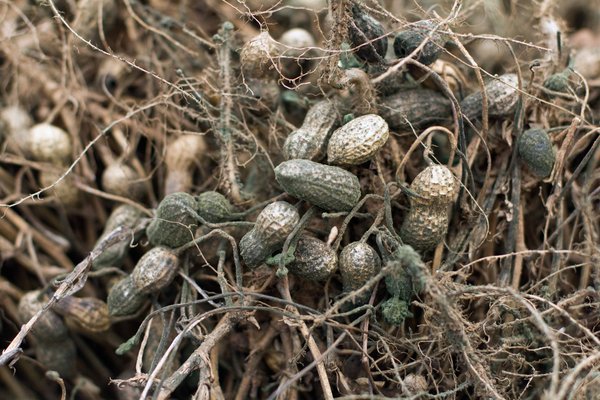 Read this article in French
Read this article in French- Share this article
- Subscribe to our newsletter
ICRISAT and GIZ join forces to combat aflatoxin contamination in groundnuts
The project will reduce the extent to which groundnuts are contaminated by cancer-causing aflatoxins – toxic substances produced by fungi. This will mitigate the threat to public health and lost income for farmers caused by export rejection.
Director General of ICRISAT Dr Jacqueline Hughes said that through extensive scientific research, ICRISAT had successfully reduced aflatoxin contamination in groundnuts. This had led to higher quality crops that contributed not only to improved nutrition and health but also increased income for smallholder farmers.
"The valuable insights we have gained to date can be applied to this project for greater impact in Malawi and beyond.”
At a technical level, the project aims to achieve a contamination level of less than ten parts per billion (ppb) for all groundnut food products in Malawi. It will also work closely with national entities such as the Parliamentary Committee on Agriculture to refine, integrate and implement policies that facilitate aflatoxin prevention and control.
Improving knowledge and skills along the groundnut value chain
ICRISAT consulted with experts and stakeholders and found that the best way to manage the risk of aflatoxin contamination in Malawi's groundnut value chain was to improve the knowledge and skills of everyone involved. Many are unaware of the issue.
Four workshops on aflatoxin contamination in groundnuts were held in districts across the country, and samples were tested at various points along the value chain. Later this year, policymakers will come together at a national seminar to discuss the findings of the workshops.
ICRISAT’s Deputy Director General of Research, Dr Arvind Kumar stressed the importance of the upcoming seminar, stating that it would provide policymakers with crucial insights for better public policy. “Our team of dedicated scientists and researchers will continue to push the boundaries of knowledge in this field, and I thank GIZ for its deep commitment to this cause,” said Dr Kumar.
Speaking on the importance of the project's outcomes to livelihoods and health, Dr Sabine Homann-Kee Tui, Senior Social Scientist at ICRISAT Malawi, said the workshops showed that farmers prioritised selling higher-quality nuts (80 to 90 per cent of their produce) outside their district.
“The remaining off-grades are often used and processed for local consumption, and through rigorous testing, the project has identified high levels of aflatoxin contamination in select processed groundnut flour and products such as peanut butter,” she explained.
In response, the project suggests setting up more testing labs, raising awareness of best practices, strengthening district structures for effective implementation, securing financing for the fight against aflatoxin, and empowering women in food safety.
"By taking proactive measures now to ensure the safety of our food supply, we can protect the well-being of our communities and promote a healthier, more resilient future for all," concluded Sam Njoroge, Senior Scientist and Country Representative at ICRISAT Malawi.
(giz/wi)
About the project
The International Crops Research Institute for the Semi-Arid Tropics (ICRISAT) Malawi is implementing the Aflatoxin Prevention and Control along the Groundnut Value Chain project funded by the Deutsche Gesellschaft für Internationale Zusammenarbeit (GIZ) through the Green Innovation Centre. The project is being delivered in Lilongwe, Mchinji, Kasungu and Mzimba.





Add a comment
Be the First to Comment